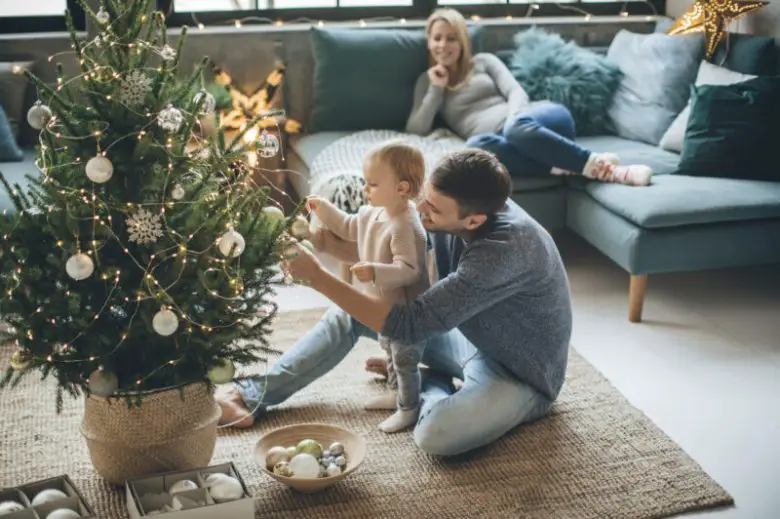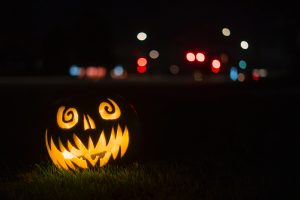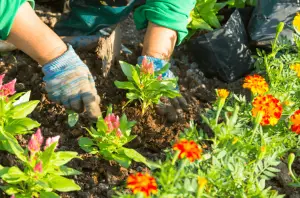
1. Homeowners Insurance: Your First Line of Defense
The foundation of your holiday home protection starts with homeowners insurance. This policy provides coverage for damage or loss to your home and its contents due to unexpected events such as fire, theft, or vandalism. During the holidays, when your home is filled with decorations, gifts, and visitors, ensuring your homeowners insurance is up-to-date is essential.
- What’s Covered?: Your homeowners insurance typically covers damages to your home’s structure, personal belongings, and liability in case of accidents.
- Why It Matters During Christmas: With more people visiting your home and the potential for fire hazards from lights or candles, making sure your homeowners policy is current can help protect you in case of emergencies.
2. Holiday Decorations and Gifts: Review Your Personal Property Coverage
Holiday decorations, including Christmas trees, lights, and ornaments, add to the festive atmosphere but can be expensive to replace if damaged or stolen. Likewise, valuable gifts are often under your tree and may not be fully covered under your standard homeowners policy.
- Coverage for Decorations: Most homeowners insurance policies include protection for personal property, including decorations. However, high-value items such as collectibles or expensive electronics may require additional coverage.
- Protecting Your Gifts: If you have valuable gifts under the tree, check if your homeowners insurance covers them. You may want to add specific coverage for high-ticket items or purchase a rider to ensure they are fully protected.
3. Add Seasonal Coverage for Holiday Visitors
During the holidays, your home likely becomes a gathering place for friends and family. While this is a time to celebrate, it’s important to consider the potential risks that come with hosting holiday guests.
- Guest Injuries: If someone is injured while visiting your home—whether from slipping on icy sidewalks or tripping over decorations—your liability coverage under homeowners insurance may help cover medical expenses and legal fees.
- Temporary Visitors: If you’re renting out your home for a holiday getaway or hosting guests for an extended period, check with your insurance provider to see if additional coverage is needed for temporary stays.
4. Fire Damage: Insure Against Holiday Hazards
Holiday decorations, especially Christmas trees, lights, and candles, pose an increased risk of fire during the season. According to the National Fire Protection Association (NFPA), Christmas tree fires cause an average of $18 million in property damage each year.
- Tree and Candle Safety: Make sure your holiday decorations are fire-resistant and never leave candles unattended. Use LED lights to reduce the risk of electrical fires, and ensure your tree is well-watered to prevent it from drying out.
- Insurance Coverage for Fire Damage: Homeowners insurance should cover fire damage, but it’s crucial to understand the specific terms of your policy. If you’re concerned about the risk, inquire with your insurer about any fire-related exclusions.
5. Theft and Burglary: Protecting Your Home from Holiday Break-ins
The holidays are a prime time for burglars, with more valuable items in homes and many homeowners traveling. Securing your home while you’re away is essential to prevent break-ins.
- Locking Up: Ensure all doors and windows are securely locked when you leave your home for extended periods. Consider using motion-sensor lights or a security system to deter burglars.
- Home Security Coverage: If you’re away for the holidays, notify your insurance company about the extended absence, as some policies may require you to have someone check on the property if you’re gone for more than a certain number of days.
- Valuable Items: If you own expensive electronics or jewelry, check with your insurer about specific coverage for high-value items. A separate rider or endorsement may be necessary to fully protect them.
6. Flood and Weather-Related Damage: Check Your Coverage
Winter storms, snow, and rain can cause significant damage to your home, such as roof leaks, burst pipes, and flooding. Standard homeowners insurance often does not cover flooding, which means additional coverage may be necessary.
- Flood Insurance: If you live in an area prone to flooding, consider purchasing separate flood insurance. This coverage can help protect your property from water damage caused by winter storms or heavy rainfall.
- Weather Damage: Check whether your homeowners insurance covers storm-related damage such as hail, snow, or freezing pipes. If not, discuss additional coverage options with your insurance agent.
7. Liability Coverage: Protecting Against Holiday Accidents
Holiday parties and gatherings often come with accidents. Whether someone slips on your driveway or your pet causes a mishap, liability coverage is vital to protect you financially.
- Guest Injuries: Liability insurance will help cover medical bills and legal fees if a guest is injured at your home during your holiday party.
- Pet Injuries: If your pet causes harm to a guest or damages property, liability insurance may also help cover those costs.
Conclusion:
The holiday season is a time for celebrating with loved ones, but it’s essential to take steps to protect your home and property from unexpected risks. By reviewing your homeowners insurance, adding coverage for valuable gifts, decorations, and temporary visitors, and ensuring you have adequate protection against fire, theft, and weather-related damage, you can enjoy a safe and worry-free Christmas. Reach out to your insurance provider today to ensure you have the right coverage to protect your home this holiday season.



